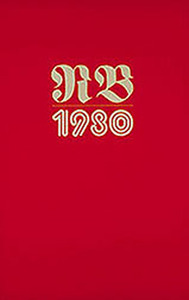Take a photo of a barcode or cover
12 reviews for:
Rb 1980: The Rule of St. Benedict: In Latin and English with Notes
Augusta Raabe, Timothy Horner, Mark Sheridan, Benedict of Nursia, Timothy Fry
12 reviews for:
Rb 1980: The Rule of St. Benedict: In Latin and English with Notes
Augusta Raabe, Timothy Horner, Mark Sheridan, Benedict of Nursia, Timothy Fry
Hard to review such an old book that is written in such a unique style compared to my normal readings. Very interesting to see what principles guide the monastery, and I can learn from their discipline in some ways.
informative
fast-paced
informative
inspiring
reflective
fast-paced
emotional
hopeful
informative
inspiring
slow-paced
not really something I can rate tbh... it's a Rule, not a book. However, it is probably my favourite Rule out of all of them
informative
inspiring
medium-paced
This was an interesting read.
Interesting read, important for understanding the historical place and role of monks. Extremely harsh and rigid at points, but reading it in its entirety did give me a sense of what would be attractive about such a life---though bouncing between these two did give me (pun unfortunately intended) whiplash. There are some good lessons in here about how to productively and compassionately live in community with others that are broadly applicable today, even outside of religious settings.
fast-paced
The Rule of St. Benedict is a surprisingly fascinating 6th century rulebook for how to run a monastery, which caught on and became the standard for centuries in most monasteries across western Europe. I was expecting it to be dry and technical, but like every other Medieval text I've read it was full of surprises. Benedict's Rule is incredibly revealing of Medieval culture, worldview, and values, both in terms of the monastic ideal Benedict sets and the practices he defines his ideal in opposition to. To a modern reader, Benedict's text has elements that seem democratic and other elements that are decidedly authoritarian; the disciplinary system of Benedictine monasteries was particularly interesting for me. The Rule of St. Benedict is a very rich primary source that I would highly recommend to anyone interested in learning more about the Middle Ages.
I read this mainly so I could get an idea of how a medieval Christian monastery worked. For, ya know, fun.
Here's a taste of some of the inspiration to be found in these pages:
"Day by day remind yourself that you are going to die." (Same.)
"Admit with your tongue and be convinced in your heart that you are inferior to all and of less value." (Even better.)
"If anyone is caught grumbling let him undergo more severe discipline." (Okay, but I mean...)
"Death is stationed near the gateway of pleasure." (Wait a minute.)
"Boys are to be disciplined in everything by everyone." (What the fu-)
An absolute hoot.
Here's a taste of some of the inspiration to be found in these pages:
"Day by day remind yourself that you are going to die." (Same.)
"Admit with your tongue and be convinced in your heart that you are inferior to all and of less value." (Even better.)
"If anyone is caught grumbling let him undergo more severe discipline." (Okay, but I mean...)
"Death is stationed near the gateway of pleasure." (Wait a minute.)
"Boys are to be disciplined in everything by everyone." (What the fu-)
An absolute hoot.
At first I planned on giving this a positive review simply for being an educational historical resource, but I ultimately decided to review it based on its content. And its content is largely one of horror.
There is a kernel of good in these rules. The abbot is elected by popular vote, and it stresses the importance of love and equality.
Unfortunately, the election of the abbot is the election of an unimpeachable tyrant and its equality doesn't bestow much more than equal oppression.
The rules matter-of-factly states that "Monks have neither free will nor free body, but must receive all they need from the abbot.", and the twelve steps of achieving the love of God set forth by Benedict are indeed twelve steps to the destruction of a persons identity and free will.
The books introduction informs us that many a modern man is plagued by their over abundance of free will and would do well to adopt Benedicts comforting way of life. Such a person should try moving to Pyongyang, they will find it to their liking.
There is a kernel of good in these rules. The abbot is elected by popular vote, and it stresses the importance of love and equality.
Unfortunately, the election of the abbot is the election of an unimpeachable tyrant and its equality doesn't bestow much more than equal oppression.
The rules matter-of-factly states that "Monks have neither free will nor free body, but must receive all they need from the abbot.", and the twelve steps of achieving the love of God set forth by Benedict are indeed twelve steps to the destruction of a persons identity and free will.
The books introduction informs us that many a modern man is plagued by their over abundance of free will and would do well to adopt Benedicts comforting way of life. Such a person should try moving to Pyongyang, they will find it to their liking.





